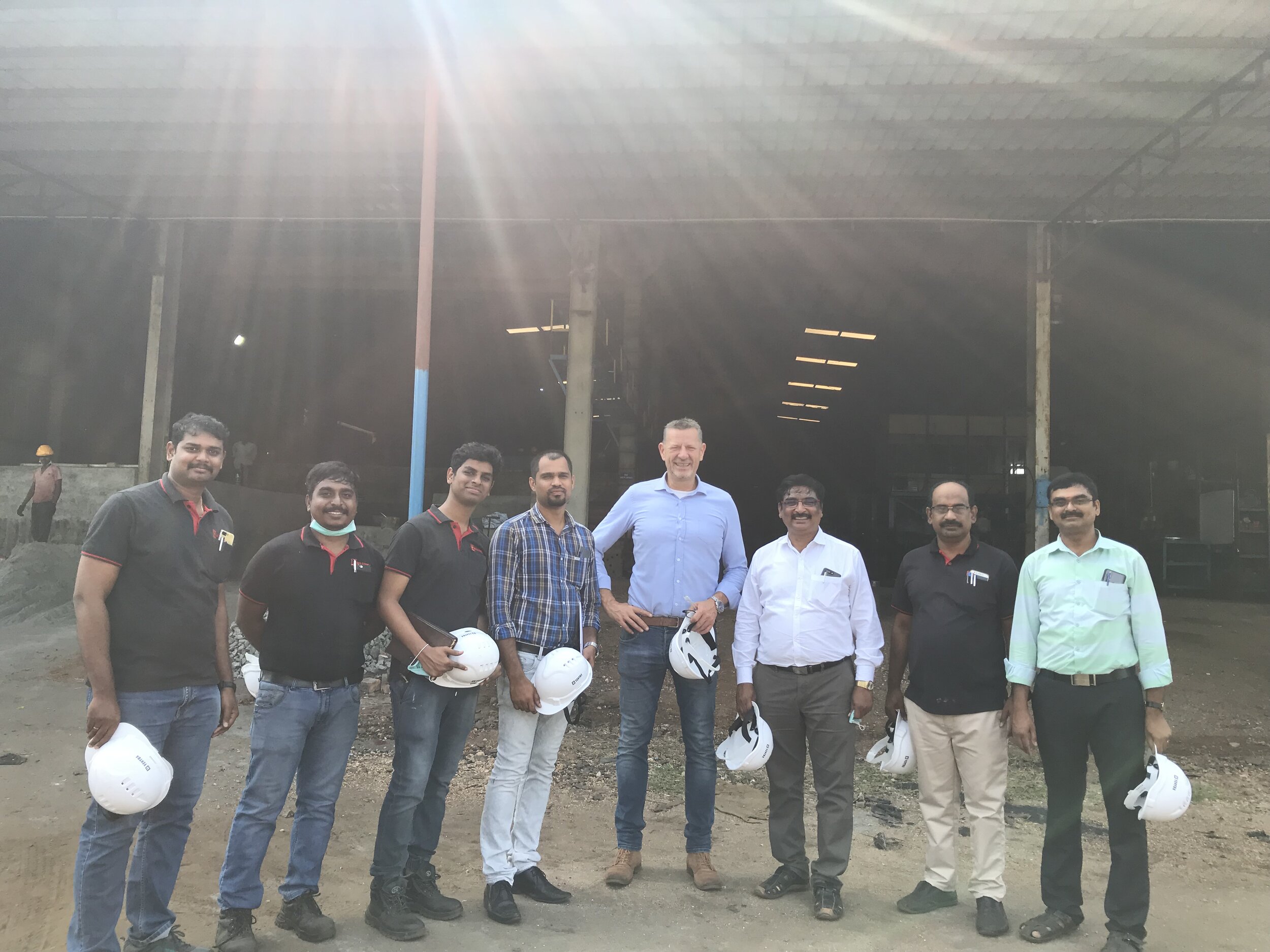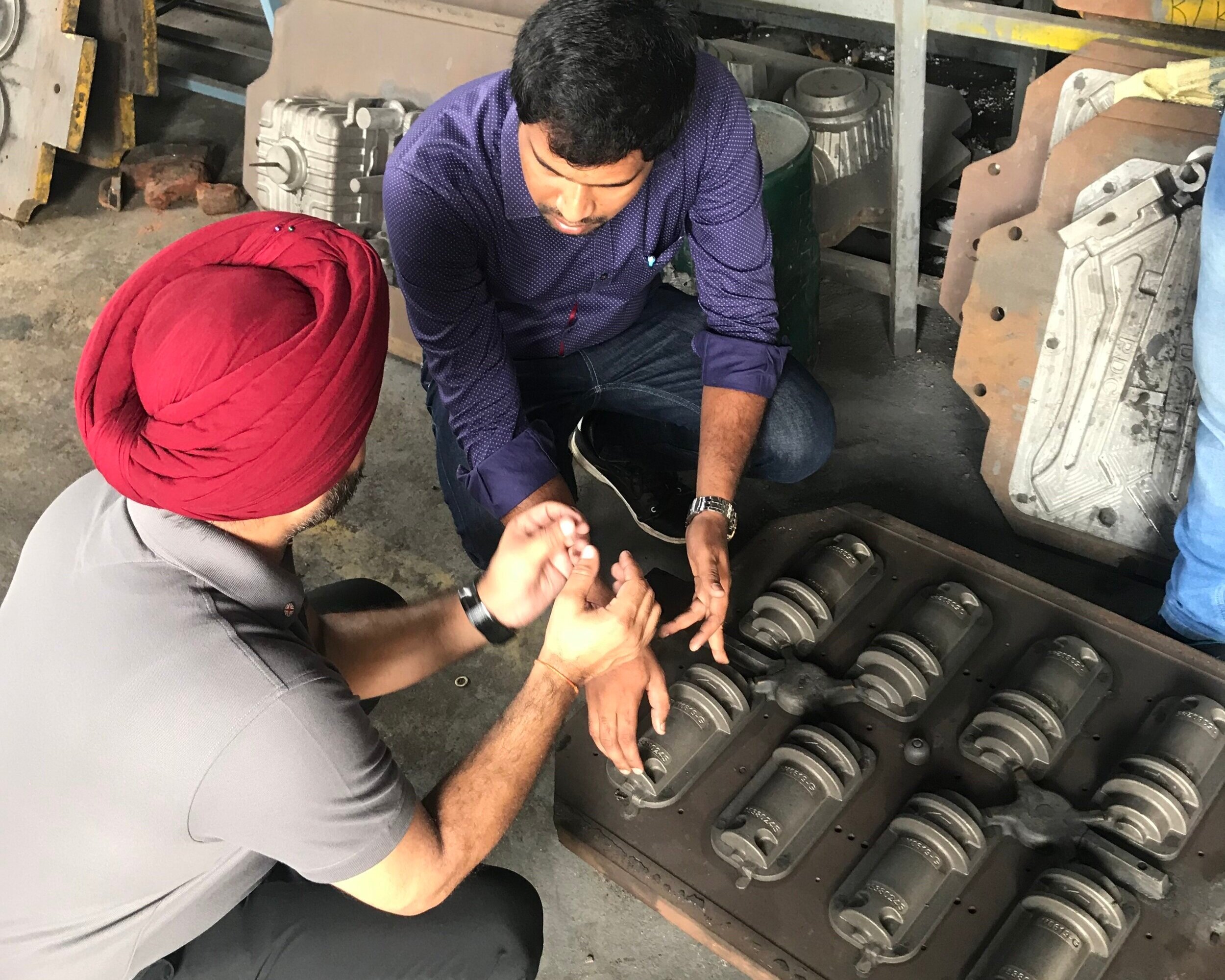Prins, one of the largest international suppliers of casting and forgingshas been active in China for 23 years. In 2017, the Amersfoort-based company decided to take a look at the possibilities in India as well. "We no longer wanted to be solely dependent on China," explains Erik Sattler, Prins' CTO. "By also starting in India, we not only spread our risks, but our customers also have a more extensive choice in terms of production methods."
CTO Erik Sattler visiting an Indian foundry
Back to 2016. Trump comes to the helm in the United States and starts a trade war with China. At that point, Prins has been outsourcing a fair share of its cast and forgings production to China for about 20 years, but has been eyeing developments in India for a few years now. "We had been thinking about a possible move there since 2010, but we were still too busy with our 70 local suppliers and the internal organisation of Prins China," explains Sattler. "Setting up a company in India is something that you have to take your time for, immerse yourself in before you can start successfully there. But the global political developments made us, and our customers, want to have another production base besides China, so in 2017 we decided to go all the way for India."
Our agent in India was a stroke of luck'.
To reinforce this decision, Prins soon hired an Indian contact. "We ended up with Jay via via and that was a real stroke of luck," says Sattler. "He was familiar with our sector and our wishes. He also works for a German company, so he understands European standards and expectations very well." It is important to be sure that an agent is also working for another company, if an entity has not yet been set up in India. In this way, a company like Prins protects itself from the danger of being designated as a permanent establishment.
Prins has now reduced the number of suppliers in China to 40 and, with Jay's help, has started working with some 30 foundries and forges in India. "We are still in the sample process with most of these foundries in India," Sattler explains. "That means we are not yet producing on a large scale. It may seem strange to still be in such a preliminary phase after three years, but all our products are custom-made and we maintain high standards. So we first have to invest heavily in tools and models before we can really get going. Our customers have all been very satisfied so far and that is saying something, because they are all global players with a lot of requirements.
Direct contact via Whatsapp
In terms of cooperation, too, Sattler sees fine advantages in producing in India. "All my contacts in India speak English well. I now have contact with the directors of the foundries from the Netherlands simply via WhatsApp." Direct contact results in more personal attention for the suppliers, an important aspect of doing business in India. "We, Europeans, want everything to be quick and businesslike, but the Indian directors find it very important to build a close, personal relationship with their Dutch business partners. It's one of the most important lessons I learned in India: don't avoid that personal relationship, it will cost you your success."
The direct contact also enables Sattler to call Indian suppliers to account for undesirable behaviour. "We regularly have to deal with the Indian hierarchy. My Indian colleagues simply can't get through to such a director and things only change when I get on the phone. The good relationship then ensures that I can address them directly about their behaviour. As long as you don't hang up the phone every week with that message, you notice that there is openness on the other side to adapt to our way of working."
We left the setting up of an entity to experts'.
Now that Prins has laid the foundation in India, it is time for the next step. "First of all, we need to build up volume. We ship around 400 containers from China every year, and we want to work towards this in India as well. In addition, we want to set up a similar logistics and test centre in India as we have in China. That is important to be able to guarantee the quality for our customers, but it also means that we will be hiring extra people in the short term."
Prins therefore started setting up its own entity in India a year ago. "We learned a lot when setting up our business in China, including that it takes a lot of extra time," says Sattler. "So this time we decided to do it together with the experts from IndiaConnected. India can be enormously bureaucratic; it obviously took a gigantic paper mill to set up our company. But we fortunately didn't have to deal with that, because IndiaConnected took care of that burden, and so we could focus fully on important matters."
Producing in India during the coronavirus
The outbreak of the coronavirus has somewhat delayed Prins's goals in India, but Sattler is looking forward to 2021 positively. "All the producers we work with have meanwhile started up again. We did experience delays with a number of deliveries, but so far our customers are very satisfied with the products that come from India. Especially the interesting price/quality ratio. In some areas, China is becoming a bit expensive. I expect that within a few years, 40% of our production will come from India."


